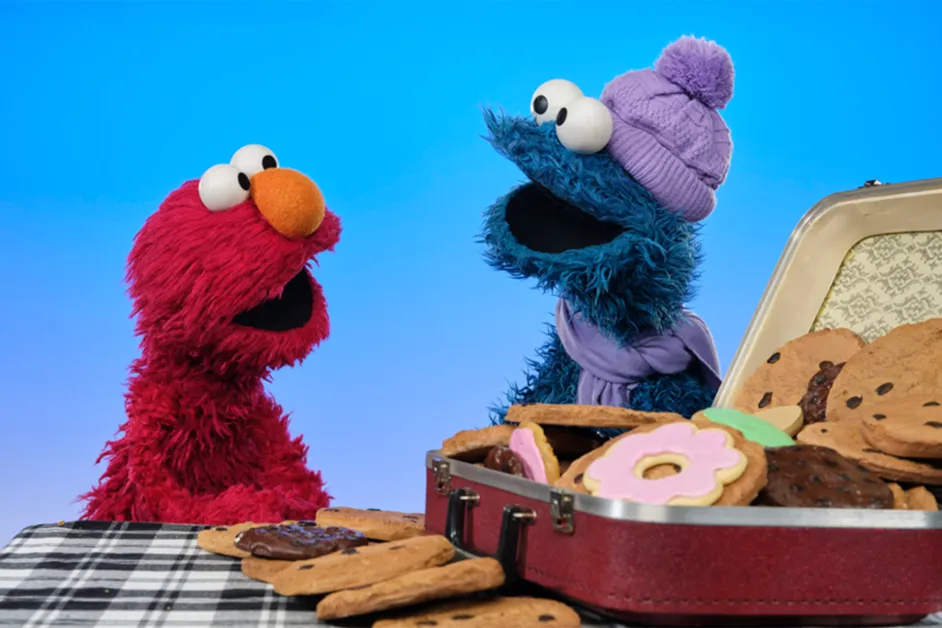C.S. Lewis’s “The Lion, the Witch, and the Wardrobe” has been a cornerstone of fantasy literature since its publication in 1950. As the first book in “The Chronicles of Narnia”, it continues to captivate generations of readers with its imaginative world, deep themes of sacrifice and redemption, and timeless characters like Aslan, Lucy Pevensie, and the White Witch. Over the years, the novel has seen countless adaptations in film, theater, and television, but in 2024, it is making waves again through two key developments: the upcoming film “The Most Reluctant Convert”, which explores Lewis’s spiritual journey, and a new podcast series that dives into the rich literary and thematic elements of “The Lion, the Witch, and the Wardrobe”.
These recent trends reflect the novel’s continued cultural resonance and its influence on modern media, especially in a time when people are seeking more meaningful narratives. By revisiting Lewis’s work through film and podcast mediums, both old and new fans are given opportunities to explore the depth of the beloved novel while appreciating its wider impact on literature, philosophy, and faith.
The Revival of C.S. Lewis’s Journey in “The Most Reluctant Convert”
One of the most significant recent trends in the renewed interest surrounding C.S. Lewis’s legacy comes from “The Most Reluctant Convert”, a film slated for release later in 2024. This movie is adapted from a one-man stage play starring Max McLean, who portrays Lewis in a deeply personal and introspective exploration of the author’s life. The narrative focuses not on Lewis’s famous works of fantasy but rather on his philosophical and spiritual journey from atheism to Christianity, a transformation that profoundly shaped his writing, particularly “The Chronicles of Narnia”.
The title of the film comes from Lewis’s own words, as he once described himself as “the most reluctant convert in all of England” when he converted to Christianity. This transformation was essential to Lewis’s intellectual life and heavily influenced the moral and theological underpinnings of “The Lion, the Witch, and the Wardrobe”.
In the film, Max McLean gives an intimate portrayal of Lewis, showing how the author’s intellectual pursuits, friendships (especially with other thinkers like J.R.R. Tolkien), and personal experiences shaped his shift toward Christianity. For those familiar with Lewis’s work, this film promises to be a meaningful exploration of the man behind Narnia, giving greater insight into the spiritual framework that informed his world-building and allegories. While Lewis may be widely known for his fiction, “The Most Reluctant Convert” highlights the existential questions and intellectual rigor that informed much of his creative output.
This trend—of examining the life of C.S. Lewis through film—is significant in a broader cultural context. Audiences today are seeking not only entertainment but also profound, reflective stories that engage with existential and spiritual questions. “The Most Reluctant Convert” speaks to a growing interest in understanding how authors’ personal beliefs and experiences shape the stories they create, especially when those stories have had such lasting impacts on readers worldwide. In an age where biographies of famous figures are being reimagined with greater depth and emotional nuance, “The Most Reluctant Convert” presents a timely exploration of the inner life of a man whose work has shaped both literature and theology.
The Lion, the Witch, and the Wardrobe Podcast: Revisiting a Classic
Simultaneously, a new podcast series titled “C.S. Lewis’s The Lion, the Witch, and the Wardrobe” has emerged, diving deeply into the themes, characters, and storytelling of the first book in “The Chronicles of Narnia”. As podcasts continue to gain momentum as a popular medium for storytelling and analysis, it is no surprise that a work as influential as “The Lion, the Witch, and the Wardrobe” would inspire such a series.
The podcast does more than simply recap the events of the novel. It delves into the moral and philosophical themes that Lewis weaved into the story, including the concepts of good and evil, redemption, sacrifice, and the nature of courage. By exploring the allegorical elements of the novel—where Aslan represents a Christ-like figure and the White Witch embodies the forces of evil—the podcast offers listeners a chance to better understand the layers of meaning that Lewis imbued in his work.
Furthermore, the podcast places the novel in a broader literary and historical context, discussing how “The Lion, the Witch, and the Wardrobe” has influenced subsequent fantasy literature, from Tolkien’s “The Lord of the Rings” to modern fantasy series like J.K. Rowling’s “Harry Potter” and Philip Pullman’s “His Dark Material”. This analysis offers insights into how Lewis’s world-building set the stage for a genre that continues to thrive today. The podcast also touches on the ways in which the novel’s themes of hope and redemption resonate with contemporary audiences, especially in times of social and political uncertainty.
The release of this podcast taps into a larger trend of re-examining classic literature through modern lenses. As literature and culture evolve, readers and listeners are increasingly interested in revisiting canonical works, not just for nostalgia but to find new meanings and connections that speak to current societal issues. In the case of “The Lion, the Witch, and the Wardrobe”, the themes of self-sacrifice, forgiveness, and the battle between good and evil have universal appeal, but they also resonate in new ways in today’s polarized and uncertain world.
The Enduring Influence of Narnia and Fantasy Literature
What makes these two developments—the film “The Most Reluctant Convert” and the “Lion, the Witch, and the Wardrobe” podcast—so significant is how they speak to the enduring legacy of C.S. Lewis’s work and the broader influence of “The Chronicles of Narnia”. Nearly seventy-five years after its publication, “The Lion, the Witch, and the Wardrobe” remains a cornerstone of fantasy literature, inspiring countless writers, filmmakers, and storytellers.
Fantasy literature has always been a vehicle for exploring complex philosophical and moral ideas, and Lewis’s work is a prime example of this. While his stories can be enjoyed at face value for their adventure and imagination, they also offer readers an opportunity to engage with deeper questions about life, faith, and the human condition. This duality is a key reason why “The Lion, the Witch, and the Wardrobe” continues to resonate with readers of all ages.
The recent resurgence of interest in Lewis and his work, as evidenced by these new media projects, is part of a larger cultural trend where fantasy stories are being revisited and reinterpreted for contemporary audiences. From the continued success of the “Harry Potter” series to the renewed popularity of Tolkien’s ”Middle-earth in Amazon’s The Lord of the Rings: The Rings of Power, there is an ongoing fascination with stories that transcend reality and offer windows into alternative worlds.
In particular, “The Lion, the Witch, and the Wardrobe” and its central figure, Aslan, continue to serve as touchstones in discussions about the role of fantasy in shaping moral and ethical thinking. Aslan’s willingness to sacrifice himself for the sins of others, and his subsequent resurrection, is an allegory for the story of Christ, but it also speaks to the broader theme of redemption that permeates much of Lewis’s work. This notion of redemption—whether in a religious or secular sense—remains relevant in a world where people are searching for ways to reconcile past mistakes and strive toward better futures.
C.S. Lewis in the Modern Cultural Imagination
At the heart of this renewed interest in C.S. Lewis and his work is a desire for stories that offer hope, clarity, and moral lessons in a time of widespread uncertainty. The cultural moment in which we find ourselves—marked by division, rapid technological advancement, and global challenges—echoes some of the existential questions that Lewis himself grappled with during his lifetime.
Lewis’s own journey from atheism to Christianity, as portrayed in “The Most Reluctant Convert”, is a reflection of the inner struggles that many people face when searching for meaning in their lives. This personal journey, combined with the universal appeal of “The Lion, the Witch, and the Wardrobe”, explains why Lewis’s work continues to attract attention across different media.
Podcasts, films, and literary analyses that revisit his stories allow audiences to engage with his work in new and meaningful ways. These formats provide opportunities for discussion, debate, and deeper understanding of the philosophical questions that underpin Lewis’s narratives. Whether it’s through analyzing the allegories in “The Lion, the Witch, and the Wardrobe” or exploring Lewis’s spiritual evolution, these recent projects make Lewis’s ideas accessible and relevant to new generations.
The continuing fascination with C.S. Lewis and “The Lion, the Witch, and the Wardrobe” in 2024 underscores the timelessness of his work and its ability to resonate across generations. The upcoming release of “The Most Reluctant Convert” and the podcast dedicated to his most famous novel represent more than just a resurgence of interest in a classic author—they reflect a cultural moment where people are seeking stories that offer both escape and meaning.
Lewis’s ability to intertwine rich storytelling with profound moral and philosophical questions ensures that his work remains relevant, even as society evolves. Whether through film, podcast, or the pages of a well-worn book, “The Lion, the Witch, and the Wardrobe” continues to inspire readers and viewers, offering a timeless message of hope, courage, and redemption.
No comments yet.








